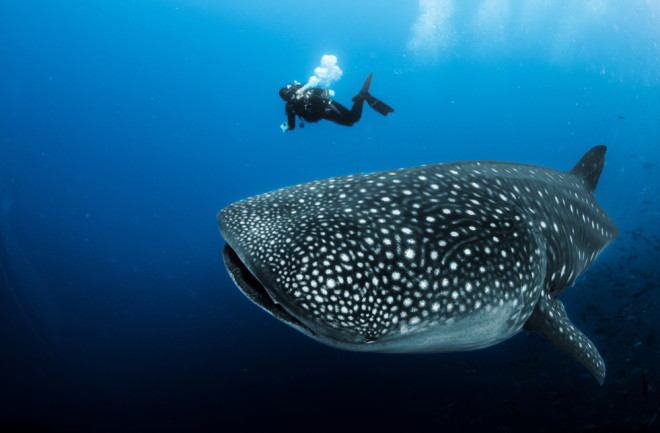Citizen Science Salon is a partnership between Discover and SciStarter.org.
As we approach the dog days of summer, Sirius, the dog star, makes its appearance in the northern hemisphere. Ancient sky gazers thought the star brought scorching heat, fever, mad dogs and bad luck. So it’s only sensible to take our citizen science activities to the nearest body of cool ocean water. In that spirit, we present our annual Under the Sea collection of Little Mermaid-approved science projects.
Adopt a Whale Shark
The whale shark is the world’s biggest fish. You can join the citizen science project Wildbook for Whale Sharks to share field observations of these amazing animals, or adopt one of over 11,000 whale sharks, such as Zeke. Donating to adopt a whale shark means that not only are you supporting a global library, but you’ll also receive updates each time your shark friend is spotted.
Listen to Whale Songs with Orcasound
Orcas of the Pacific Ocean sing joyously like there’s no one listening. Presumably, they’d be mortified to discover that there are underwater microphones placed throughout Washington's Salish Sea, with Orcasound volunteers listening in. You can join the citizen science project and report what you hear to the project leads.
Blue Water Task Force
Founded by California surfers dedicated to monitoring Pacific coastal waters, Surfrider now operates nationally. You can volunteer to monitor water quality even if you’re just a hodad, shubie, barney, grom or paddlepuss (surfspeak for “not an actual surfer”). Join the Blue Water Task Force chapter nearest you.
Peruse History with FISHstory
Love history and looking at pictures of fish from home? Then FISHstory could be just your cup of chowder. This citizen science project asks volunteers to peruse photos from the mid-20th century for anything that looks fishy, and then report the species and number of fish you spot. The data will help scientists understand fisheries before dedicated monitoring programs were put in place.
Protect Waterways with EarthEcho
Join over a million and a half volunteers from 146 countries in the EarthEcho Water Challenge. Purchase a water test kit (about $25 for single basic kits; $68 for classroom kits), collect data on basic water quality parameters (temperature, pH, clarity and dissolved oxygen) and then share your data with a large research database to help protect waterways around the planet.





